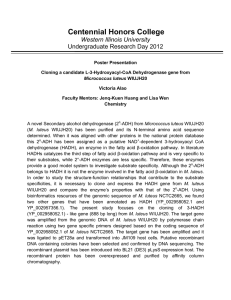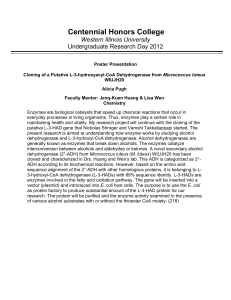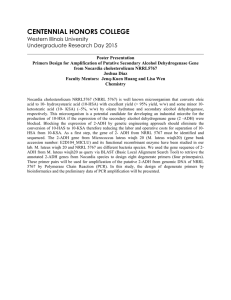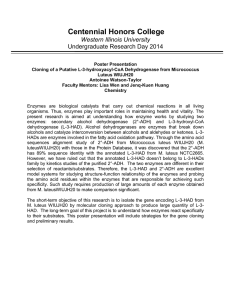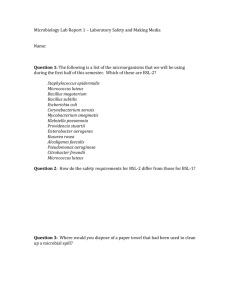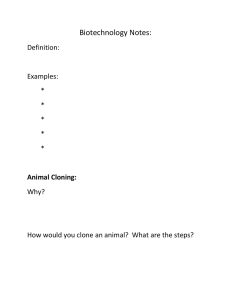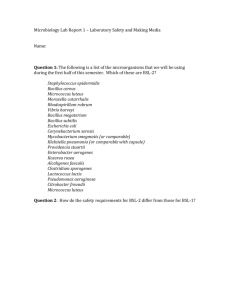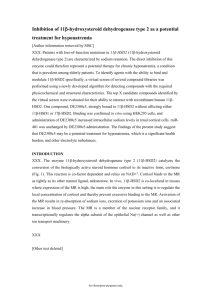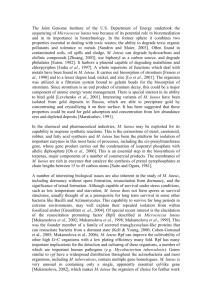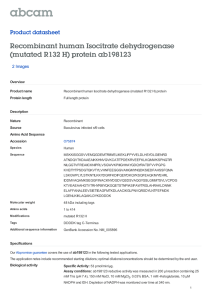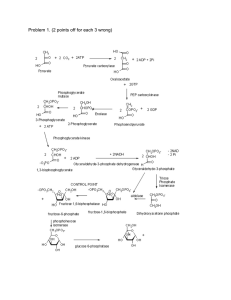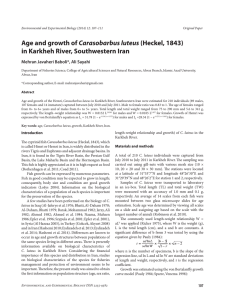Centennial Honors College Western Illinois University Undergraduate Research Day 2012
advertisement
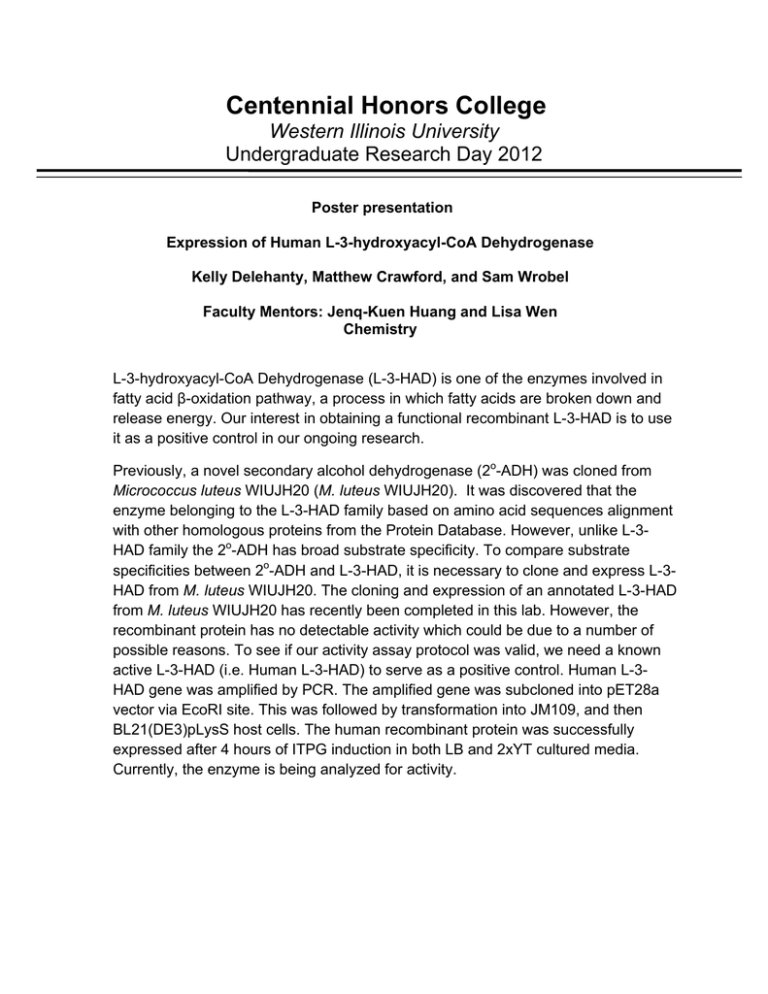
Centennial Honors College Western Illinois University Undergraduate Research Day 2012 Poster presentation Expression of Human L-3-hydroxyacyl-CoA Dehydrogenase Kelly Delehanty, Matthew Crawford, and Sam Wrobel Faculty Mentors: Jenq-Kuen Huang and Lisa Wen Chemistry L-3-hydroxyacyl-CoA Dehydrogenase (L-3-HAD) is one of the enzymes involved in fatty acid β-oxidation pathway, a process in which fatty acids are broken down and release energy. Our interest in obtaining a functional recombinant L-3-HAD is to use it as a positive control in our ongoing research. Previously, a novel secondary alcohol dehydrogenase (2o-ADH) was cloned from Micrococcus luteus WIUJH20 (M. luteus WIUJH20). It was discovered that the enzyme belonging to the L-3-HAD family based on amino acid sequences alignment with other homologous proteins from the Protein Database. However, unlike L-3HAD family the 2o-ADH has broad substrate specificity. To compare substrate specificities between 2o-ADH and L-3-HAD, it is necessary to clone and express L-3HAD from M. luteus WIUJH20. The cloning and expression of an annotated L-3-HAD from M. luteus WIUJH20 has recently been completed in this lab. However, the recombinant protein has no detectable activity which could be due to a number of possible reasons. To see if our activity assay protocol was valid, we need a known active L-3-HAD (i.e. Human L-3-HAD) to serve as a positive control. Human L-3HAD gene was amplified by PCR. The amplified gene was subcloned into pET28a vector via EcoRI site. This was followed by transformation into JM109, and then BL21(DE3)pLysS host cells. The human recombinant protein was successfully expressed after 4 hours of ITPG induction in both LB and 2xYT cultured media. Currently, the enzyme is being analyzed for activity.
